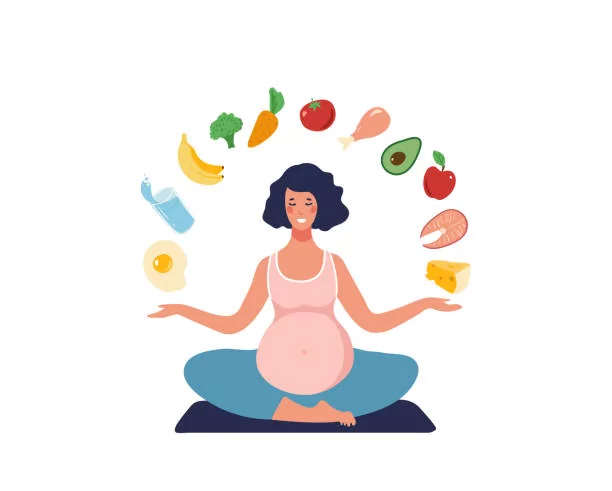The Importance of Vitamin B12 During Pregnancy: Cobalamin Benefits and Sources
Introduction
Vitamin B12 plays a vital role in maintaining a healthy nervous system, and when combined with folic acid during pregnancy, it is believed to help prevent birth defects in the baby. In this blog post, we will explore the benefits of vitamin B12 during pregnancy, natural food sources of B12, signs of deficiency, and the role of other B vitamins. We will also discuss the need for B12 supplementation, especially for those who are deficient.
Natural Food Sources of Vitamin B12

Including vitamin B12-rich foods in your diet is important during pregnancy. Some natural food sources of B12 include:
- Wild salmon
- Soy milk or soy products (fortified with B12)
- Shrimp
- Grass-fed beef liver or tenderloin
- Yogurt
- Fortified cereals
- Red meat
- Swiss cheese
- Milk
- Cottage cheese
- Cod
How Vitamin B12 Aids in Pregnancy?

Vitamin B12 serves several important functions during pregnancy:
- Neural Tube Formation and Development: B12 is essential for the baby’s neural tube formation, brain development, and spine development.
- DNA Synthesis and Red Blood Cell Production: When combined with folate (B9), B12 helps in DNA synthesis and the production of red blood cells.
- Brain, Nervous System, and Blood Cell Development: B12 aids in the development and functioning of the brain, nerves, and blood cells.
- Energy, Mood, and Stress Regulation: B12 helps improve energy levels, mood, and stress by aiding in the metabolization of fats, carbohydrates, and proteins.
- Central Nervous System Function: B12 regulates the synthesis of myelin and fatty acids, which help maintain normal central nervous system and neurological functions.
Signs of Vitamin B12 Deficiency
While B12 deficiencies are rare in women of childbearing age, they can increase the risk of neural tube defects (NTDs) in the baby, similar to problems that may arise from low folate levels. Serious birth defects like anencephaly, encephalocele, and spina bifida can occur. If you suspect a B12 deficiency and experience symptoms such as depression, anxiety, fatigue, or insomnia, it is important to contact your doctor immediately.
The Need for B12 Supplementation
If you are vitamin B12 deficient before pregnancy, your doctor may recommend supplementing B12 along with folic acid to prevent birth defects and support the development of the baby’s spine and central nervous system. Most prenatal vitamins already contain the necessary blend of B vitamins, including B12. However, it is still important to consult with your healthcare professional before adding additional B12 supplements if you are not deficient.
B Vitamins: Supporting Pregnancy

Other B vitamins also play crucial roles during pregnancy:
- B-1 (Thiamine): Supports the baby’s healthy brain development.
- B-2 (Riboflavin): Keeps eyes healthy and promotes glowing skin.
- B-3 (Niacin): Eases morning sickness, keeps nausea at bay, and improves digestion.
- B-5 (Pantothenic Acid): Reduces leg cramps and aids in the production of essential pregnancy hormones.
- B-6 (Pyridoxine): Aids in the development of the baby’s nervous system and brain. (Do not exceed 100 mg)
- B-7 (Biotin): Increased consumption is vital as deficiency is common during pregnancy.
- B-9 (Folic Acid): Plays a significant role in reducing the risk of birth defects. (Do not exceed 1000 mcg)
B Vitamin Complex Supplements During Pregnancy
Prenatal vitamins usually contain the recommended dosages of B vitamins. It is unnecessary to routinely supplement with additional B vitamins unless advised by a healthcare professional. A well-balanced diet alongside prenatal vitamins should be sufficient to meet your nutritional needs during pregnancy.
Conclusion
Vitamin B12 is essential for a healthy nervous system and plays a crucial role in preventing birth defects during pregnancy. Incorporate B12-rich foods into your diet and consult with your OBGYN about the need for supplementation. A well-informed and healthy pregnancy is key to the well-being of both you and your baby. Remember to ask questions, stay stress-free, and enjoy this special journey.
Read for detailed information:







